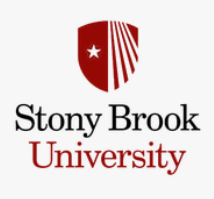Stony Brook University’s AI Institute is at the forefront of addressing the challenges posed by AI-driven resume screening. As reported by Newsday, AI tools are increasingly used by HR departments to manage the growing volume of job applications. These systems can process thousands of resumes in minutes, but concerns about potential bias and the lack of nuanced understanding have been raised. Steven Skiena, director of the AI Institute at Stony Brook, emphasizes the need for careful implementation of AI in recruitment to ensure fairness and effectiveness.
Governor Kathy Hochul has announced significant initiatives to position New York as a national leader in artificial intelligence (AI) research and education. The State University of New York (SUNY) will establish the SUNY INSPIRE Center, aimed at scaling AI research and scholarship to benefit the public good. Additionally, select SUNY campuses will create Departments of AI and Society to foster
A study by Stony Brook University, published in Nature Digital Medicine, demonstrates that artificial intelligence (AI) can assess community mental health by analyzing social media language. The research analyzed over 1 billion tweets from
Governor Kathy Hochul recently signed the "LOADinG" Act into law, requiring New York State agencies to conduct biannual AI impact assessments. The law mandates transparency for AI used in decision-making and protects public sector workers from job displacement due to automation. This legislation reflects the state's commitment to balancing technological innovation with ethical oversight.
The AI2050 Early Career Fellowship, established by Schmidt Sciences, supports postdoctoral and pre-tenure researchers tackling ambitious, multidisciplinary challenges in artificial intelligence (AI). The 2024 cohort comprises 19 fellows from institutions such as MIT, Oxford, and Stanford. Each fellow receives up to $300,000 over two years, along with access to a global network of experts to adv
Governor Kathy Hochul announced a $20 million public-private investment aimed at advancing artificial intelligence (AI) research and development in New York State. This initiative involves a collaboration between the University at Albany and IBM to establish the Center for Emerging Artificial Intelligence Systems. The center is designed to promote innovation and attract AI companies to the regi
A recent Newsday article titled "Unregulated artificial intelligence: Issue raises concern among NY scientists" discusses the growing concerns among New York scientists about the potential risks associated with unregulated artificial intelligence (AI). The article highlights that hundreds of academics and tech executives have signed a statement warning that AI poses a "risk of extinction," citing dangers such as weaponization and unforeseen consequences.
A 2023 Newsday article titled "Will AI-generated art steal LI artists' jobs?" explores the growing concerns among Long Island's digital art community regarding the rise of AI-generated art. While traditional artists working with mediums like paint and sculpture may not be immediately affected, commercial digital artists who sell their work to businesses are apprehensive about the potential impact of AI tools like Midjourney, DALL·E 2, and Stable Diffusion. These A
The KQED MindShift article "Worried About ChatGPT and Cheating? Here Are 4 Things Teachers Should Know" provides insights into how educators can navigate the challenges posed by AI tools like ChatGPT in academic settings.
Spectral AI's DeepView system is at the forefront of an emerging "arms race" in burn assessment technology, particularly relevant in military contexts. This AI-driven platform analyzes multispectral imaging of wounds against a burn biopsy tissue database, enabling rapid and accurate evaluation of burn severity. Such capabilities are crucial for timely and appropriate treatment decisions, poten


